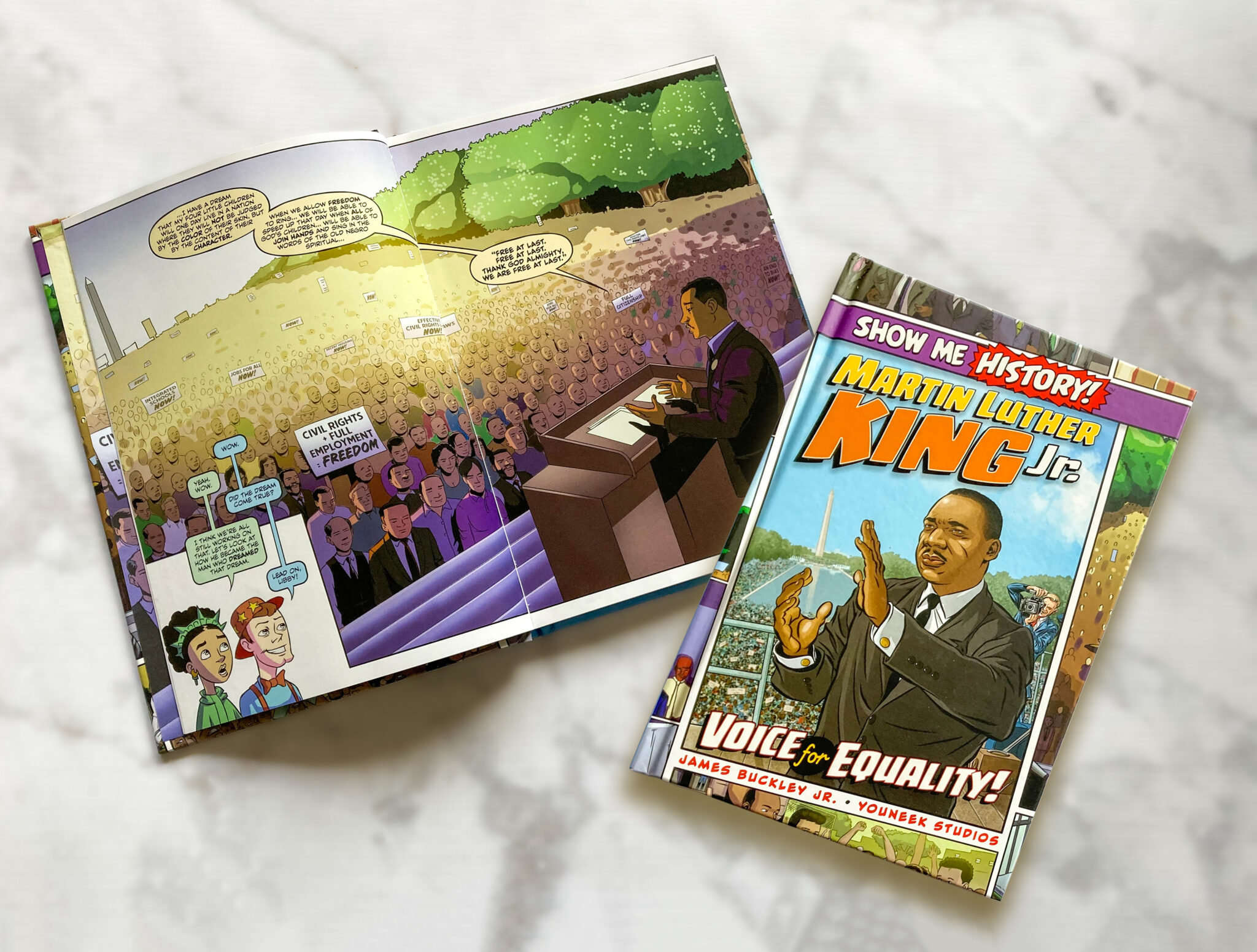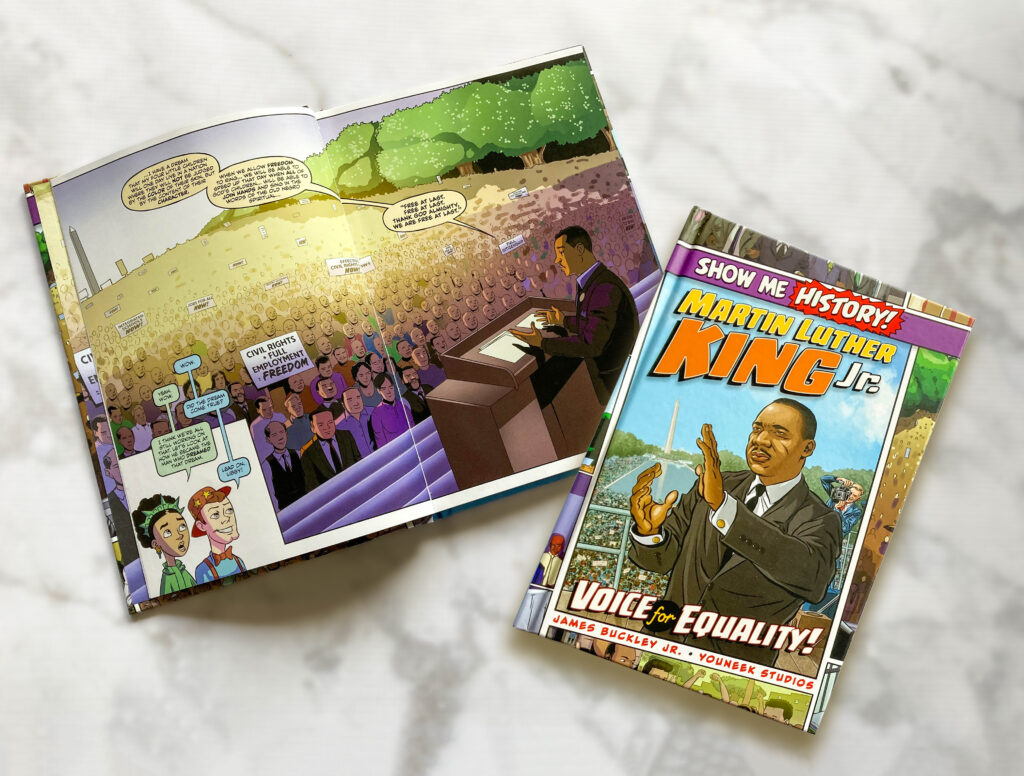
We all study Dr. King in school, so we all know a little about the man, but there’s a lot of fascinating stuff out there to be learned about the freedom fighter, Civil Rights pioneer, and all-around great American. Learn more below, and read Martin Luther King, Jr.: Voice for Equality! for a deeper dive.
King was a scholar
Martin Luther King was extremely intelligent, of course, but so much so that he skipped two grades — ninth and twelfth — and enrolled at Morehouse College at age 15. By the time he graduated with a degree in sociology, he was already an ordained minister. From there, he went on to earn a divinity degree from Crozer Theological Seminary. Certainly only of the greatest orators in history, King received a C in his public speaking course during his first year at that school. (Beyond that, he had straight As and ultimately graduated as valedictorian.) After that, it was on to Boston University to get his doctorate. His dissertation: “A Comparison of the Conceptions of God in the Thinking of Paul Tillich and Henry Nelson Wieman.” King earned that Ph.D. at the tender age of 26.
King was an orator
His famous “I Have a Dream” speech during the March on Washington was not the first time King gave a powerful address at the Lincoln Memorial. During the Prayer Pilgrimage for Freedom in May 1957, an early iconic moment in the Civil Rights Movement, King spoke about voting rights to around 30,000 people. Historians say the speech propelled him to the front of the movement’s leadership.
King was nearly murdered in the 1950s
King survived an attempted assassination in September 1958. While signing copies of his book Stride Toward Freedom at a Harlem, New York, department store, a woman named Izola Ware Curry attacked him with a letter opener. He survived thanks to emergency surgery to remove the blade, which was just millimeters away from his aorta.
King was influential on space travel, real and imagined
He indirectly but profoundly affected science-fiction and the space program. King was a huge fan of the original Star Trek series, which also happened to be one of the few shows on TV at the time that depicted an African-American character in an important position, Enterprise communications officer Nyota Uhura. Actress Nichelle Nichols nearly walked away from the show after one season, but King personally encouraged her to stay because he felt it was important for African-Americans to see a non-stereotypical black character on TV. So she did. Twenty years later, Ronald McNair became the second African-American astronaut, who said he was inspired to go into the space program by watching Uhuru on Star Trek.
King had some big music industry connections
In 1980, music superstar Stevie Wonder released the single “Happy Birthday,” a major part of the national drive to get King’s birthday declared a national holiday. (It worked — we’ve observed the holiday since 1986.) The song was not nominated for any Grammys, but ironically, King himself is a Grammy winner. In 1971 he was posthumously awarded Best Spoken Word Album for his recording Why I Oppose the War in Vietnam.
The moment of King’s death was chaotic and tragic
After King was shot on his balcony at the Lorraine Motel in Memphis in April 1968, there was, notoriously, a delay in getting an ambulance on the scene, in the hopes that the leader’s life could be saved. The reason for that: hotel co-owner Lorraine Bailey witnessed King’s assassination and was so distraught she suffered a fatal heart attack. She also worked the motel’s switchboard, and so when King’s associate, Rev. Samuel Kyles, tried to call for an ambulance, there was nobody at the switchboard to immediately connect him.
To learn more about this world-changing icon, check out Martin Luther King Jr.: Voice for Equality! It’s part of Show Me History!, our line of fully illustrated biographies of remarkable figures. They’ll all available now from Portable Press.








